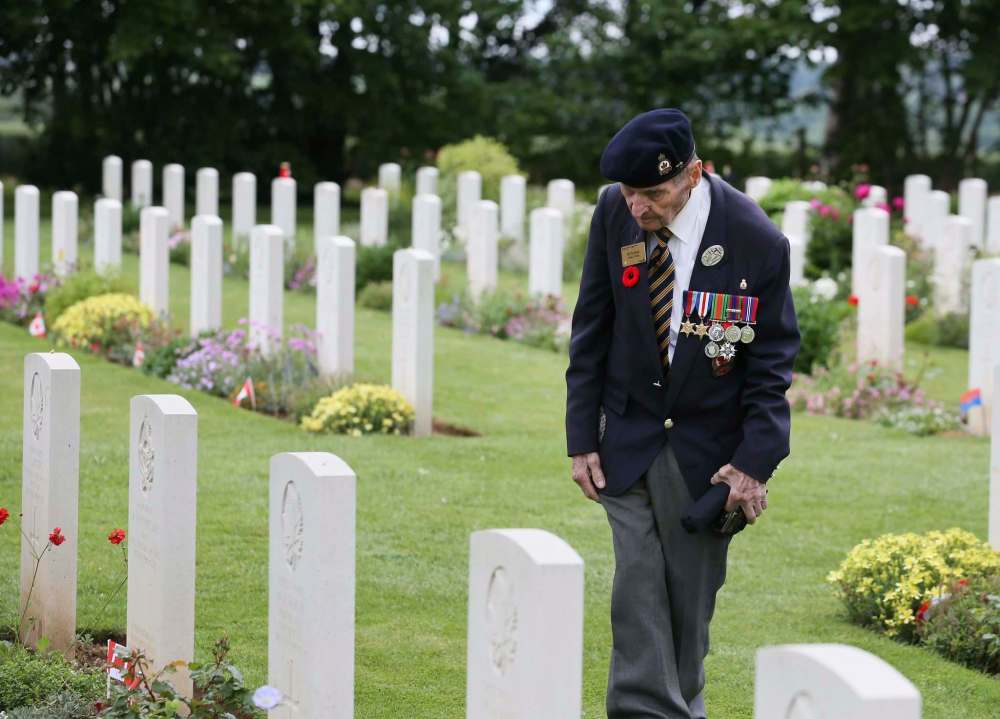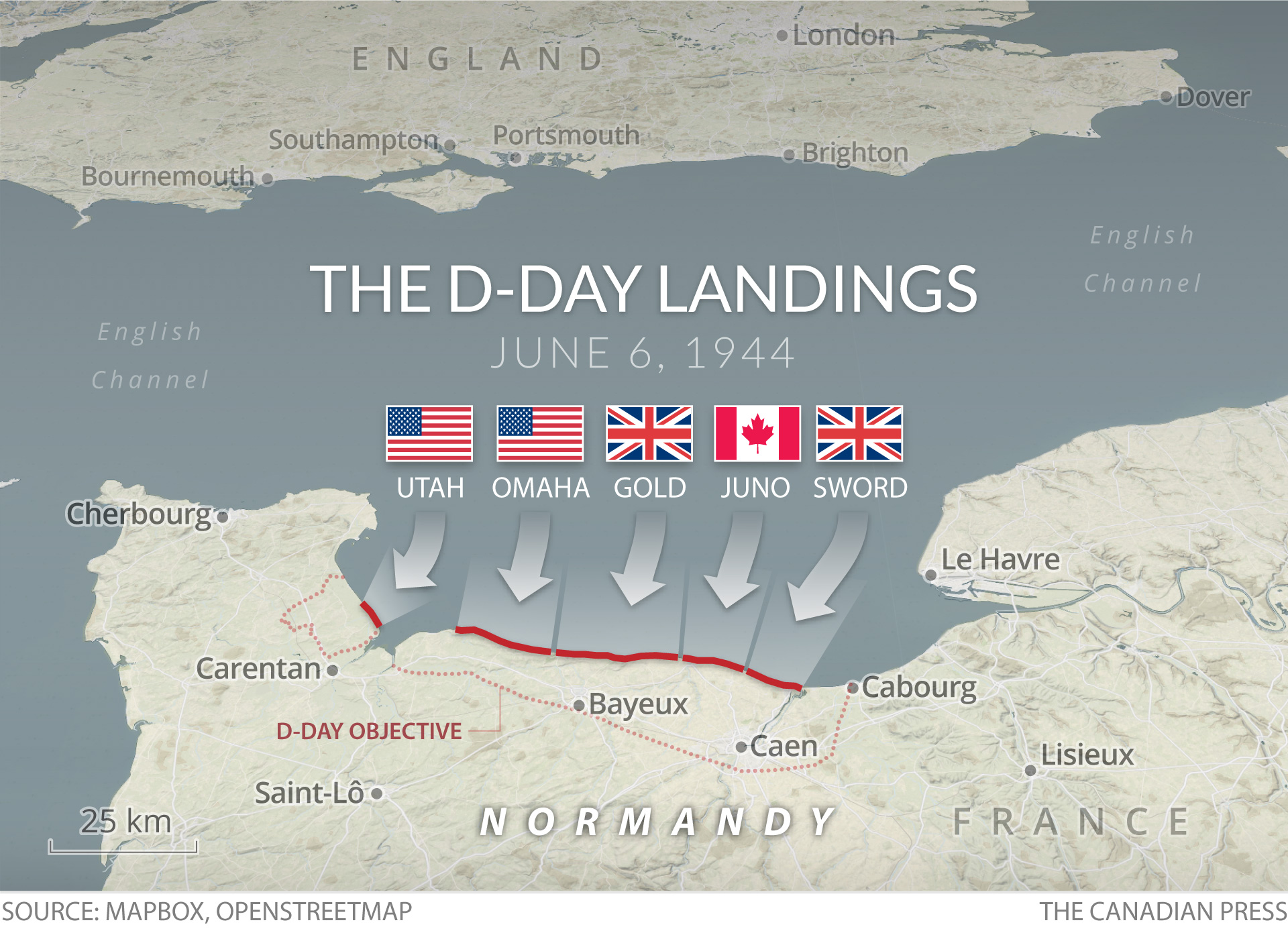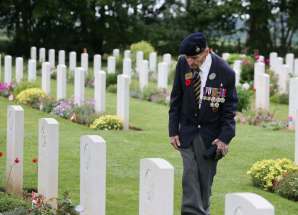D-Day reflections should consider current context
Read this article for free:
or
Already have an account? Log in here »
To continue reading, please subscribe:
Monthly Digital Subscription
$0 for the first 4 weeks*
- Enjoy unlimited reading on winnipegfreepress.com
- Read the E-Edition, our digital replica newspaper
- Access News Break, our award-winning app
- Play interactive puzzles
*No charge for 4 weeks then price increases to the regular rate of $19.00 plus GST every four weeks. Offer available to new and qualified returning subscribers only. Cancel any time.
Monthly Digital Subscription
$4.75/week*
- Enjoy unlimited reading on winnipegfreepress.com
- Read the E-Edition, our digital replica newspaper
- Access News Break, our award-winning app
- Play interactive puzzles
*Billed as $19 plus GST every four weeks. Cancel any time.
To continue reading, please subscribe:
Add Free Press access to your Brandon Sun subscription for only an additional
$1 for the first 4 weeks*
*Your next subscription payment will increase by $1.00 and you will be charged $16.99 plus GST for four weeks. After four weeks, your payment will increase to $23.99 plus GST every four weeks.
Read unlimited articles for free today:
or
Already have an account? Log in here »
Hey there, time traveller!
This article was published 05/06/2019 (2378 days ago), so information in it may no longer be current.
It’s a time to remember those who fought. But it’s equally important to recall what they were fighting for.
June 6 marks the 75th anniversary of D-Day, the launch of the boldest seaborne assault in history — a massive multinational manoeuvre so audacious that it could only have been considered by Allied-nations commanders who had no other options, for whom attempting the near-impossible represented the best and only chance at stemming the spread of tyranny and defeating the conquest-inclined Axis powers led by Adolf Hitler’s Germany.
D-Day, a massive military thrust spread across five beach-heads on the French Atlantic coast, began the long and bloody process of liberating Europe, beginning in France and continuing inexorably eastward until the capture of Berlin and Germany’s surrender in May 1945.

This week in Normandy, thousands have gathered — including veterans and their families, politicians, military personnel and other assorted dignitaries — to pay their respects to those who fought and died in the pivotal assault of the Second World War. Prime Minister Justin Trudeau travelled to France with a Canadian contingent, as have Premier Brian Pallister and several cabinet ministers. U.S. President Donald Trump, of course, is also there.
The focus of the week’s commemorations has rightly been on the historical significance of what was accomplished in the wake of the D-Day assault, but it’s difficult to view the outpouring of respect without considering the current state of politics in many of the nations that were either liberated or involved in the liberation of Nazi-controlled Europe.
D-Day’s sole intent was to confront, arrest and defeat extremism. And yet, 75 years later, one can’t help thinking some of the hardest-learned lessons have been forgotten.
Most important this week, of course, is honouring the sacrifices made by the waves upon waves of young men, from many countries but united in common purpose, who were willing to risk everything in order to defend what’s right.
They fought, and many were wounded or killed, to defeat not just an enemy, but also to repudiate a set of ideals that sought to create a divided and hateful world. They fought for freedom of choice, of religion, of political affiliation, of ethnic identity, and they fought for freedom from discrimination, racism, anti-Semitism and genocidal violence.

Not many who fought are left; it’s estimated that fewer than four per cent of the men who landed on the beaches of Normandy on June 6, 1944, are still alive. One might be inclined to wonder what those survivors think of the current global situation, in which extremism is on the rise and the leaders of some of D-Day’s Allied nations traffic freely in speech and actions that give comfort to exactly the sorts of attitudes the heroes of the Second World War sought to vanquish.
In a recent interview with The Canadian Press, 95-year-old British military veteran Martin Maxwell — who was born Max Meisels but changed his name six days before D-Day on the advice of a commanding officer who cautioned Jewish troops would face certain death if captured and identified as Jews by German forces — offered this perspective on what his fallen comrades might think:
“If these young men would get up today and look at the world and what is happening, not only against the Jews — mosques are being attacked, churches are attacked — they would say, ‘What the hell have you done with the tomorrows we gave you?’”













